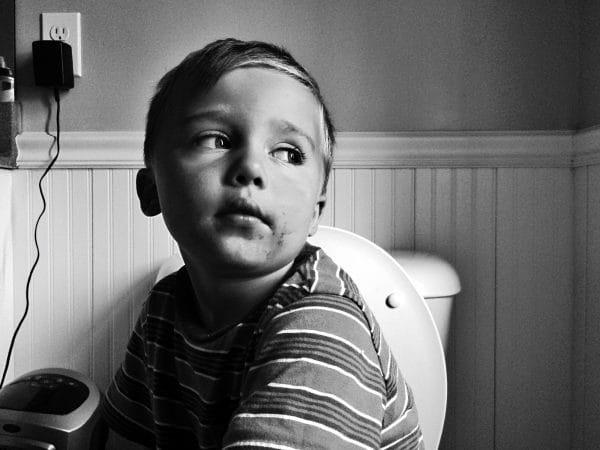Understanding the Dynamics of Parent-Child Relationships
The bond between parents and their children is one of the most profound and influential relationships in a human’s life. From the moment of birth, the interactions between a parent and child begin to shape the child’s personality, behaviors, and understanding of the world. The significance of parent-child relationships cannot be overstated, as they lay the groundwork for a child’s emotional, social, and cognitive development. In this article, we will delve into the types of parent-child relationships, explore why these relationships are so important, and examine the impact they have on both the child and the parent.

Types of Parent-Child Relationships
![]()
Parent-child relationships can take various forms, each with its characteristics and effects on the child’s development. These types are often categorized by the parenting styles that create them. Here are some common types of parent-child relationships:
- Authoritative: This relationship is marked by a balance of high responsiveness and high demands. Parents set clear standards while being attentive to their children’s needs. This type of relationship tends to produce children who are happy, capable, and successful.
- Authoritarian: In these relationships, parents place high demands on their children but with little responsiveness. They expect obedience without question, often leading to children who are obedient yet may struggle with self-esteem and happiness.
- Permissive: Permissive parents are highly responsive to their child’s needs but place few demands or controls on them. This relationship can lead to children who lack self-discipline but are generally creative and expressive.
- Uninvolved: An uninvolved relationship is characterized by low responsiveness and low demands. Parents may fulfill basic needs but are generally detached from their child’s life. This can result in children with poor self-control, low self-esteem, and less competence in social settings.
Each of these types of parent-child relationships shapes the child’s development in distinctive ways. It’s important to note that not all relationships fit neatly into these categories, as parenting is a complex and dynamic process.
Why Are Parent-Child Relationships Important?
![]()
The relationships between parents and children are critical for several reasons. They are the primary source of a child’s emotional support, provide the basis for learning how to interact with others, and influence a child’s psychological and physical well-being. Here are a few key reasons why parent-child relationships are so important:
- Emotional Security: A secure parent-child relationship provides a child with a sense of safety and security, essential for healthy emotional development.
- Social Development: Through their relationship with their parents, children learn social cues, understand the dynamics of relationships, and develop skills for interacting with others.
- Behavioral Modeling: Children often model their behavior after their parents. A positive relationship can lead to positive behaviors and vice versa.
- Cognitive Development: Engaged and responsive parents can stimulate a child’s cognitive development through play, conversation, and exploration.
- Mental Health: The quality of the parent-child relationship is closely linked to a child’s mental health, affecting their risk for conditions such as depression and anxiety.
The impact of these relationships extends beyond childhood, influencing an individual’s personality, life choices, and the way they form relationships in adulthood. Thus, fostering a healthy parent-child relationship is crucial for the long-term well-being of the child.
Examples and Case Studies
![]()
Real-world examples and case studies offer valuable insights into the importance of parent-child relationships. For instance, longitudinal studies have demonstrated that children with secure attachments to their parents are more likely to achieve higher educational attainment and have better social outcomes. Conversely, research has shown that children who experience neglect or abuse from their parents may struggle with trust, intimacy, and self-esteem issues later in life.
One notable case study is the Minnesota Longitudinal Study of Risk and Adaptation, which followed participants from birth into their 30s. The study found that the quality of the parent-child relationship in the first years of life had a profound effect on a person’s social and emotional outcomes as an adult.
Statistics Supporting the Importance of Parent-Child Relationships
![]()
Numerous studies have quantified the effects of parent-child relationships. Some key statistics include:
- Children with secure attachments to their parents have a 20% greater chance of graduating from high school compared to those with insecure attachments.
- Research indicates that positive parent-child interactions throughout childhood can reduce the likelihood of mental health issues by up to 14%.
- A study found that adults who reported high levels of parental warmth and closeness in their childhood had lower levels of certain chronic illnesses.
These statistics underscore the tangible benefits that a nurturing parent-child relationship can have on a child’s life trajectory.
Frequently Asked Questions
![]()
How can I improve communication with my child?
To improve communication, be an active listener, show genuine interest in their feelings, and engage in conversations without judgment. Spend quality time together and create a safe environment for open communication.
What should I do if my child lies to me?
If your child lies, stay calm and address the behavior, not the child. Discuss the importance of honesty and the consequences of lying. Try to understand why they felt the need to lie and work on building trust.
How can I encourage good behavior in my child?
Encourage good behavior by setting clear expectations, using positive reinforcement, and being a good role model. Consistently praise good behavior and provide gentle, constructive guidance when they make mistakes.
How can I set effective boundaries with my child?
To set effective boundaries, be clear and consistent about rules and consequences. Explain the reasons behind the rules, and involve your child in the boundary-setting process when appropriate. Be firm but loving in enforcing these boundaries.
What should I do if my child has a tantrum in public?
During a public tantrum, remain calm and composed. Gently but firmly remind your child of appropriate behavior. If necessary, remove them from the situation until they calm down. Discuss the behavior later, when everyone is calm.
How can I help my child build self-esteem?
Help your child build self-esteem by offering praise for their efforts, not just their achievements. Encourage them to try new things and face challenges. Show unconditional love and support, and teach them to be kind to themselves.
How can I teach my child to be responsible?
Teach responsibility by giving your child age-appropriate chores and tasks. Let them face the natural consequences of their actions when it’s safe to do so. Praise their responsible behavior and guide them in learning from their mistakes.
What can I do if my child is being bullied?
If your child is being bullied, listen to their experience, and validate their feelings. Work with them to find solutions, and involve school officials when necessary. Teach them how to stand up for themselves safely and seek support from friends and adults.
How can I help my child deal with peer pressure?
Help your child deal with peer pressure by discussing the importance of values and making good choices. Role-play different scenarios and teach them how to say no confidently. Encourage them to choose friends who respect their decisions.
How can I support my child’s education?
Support your child’s education by showing an interest in their school activities, helping them with homework when needed, and encouraging reading and learning outside school. Communicate with their teachers and attend school events to stay involved.
Conclusion: The Lasting Impact of Parent-Child Relationships
![]()
In conclusion, the relationship between parents and children is a cornerstone of human development. The types of parent-child relationships, ranging from authoritative to uninvolved, each have unique implications for a child’s growth and well-being. These relationships are not only critical for providing emotional security and fostering social skills but also serve as a foundation for cognitive development and mental health.
Through examples and case studies, we’ve seen how a healthy relationship can positively influence a child’s life, while a negative one can have detrimental effects. Statistics further support the significance of these bonds, highlighting their role in educational success and long-term health outcomes.
Ultimately, understanding and nurturing these relationships is essential for parents, caregivers, and educators alike. By prioritizing the development of strong, supportive bonds with children, society can help ensure that the next generation is equipped with the tools they need to thrive in an ever-changing world. The importance of parent-child relationships is not just a matter of individual family dynamics but a crucial element for the collective future of our communities.




